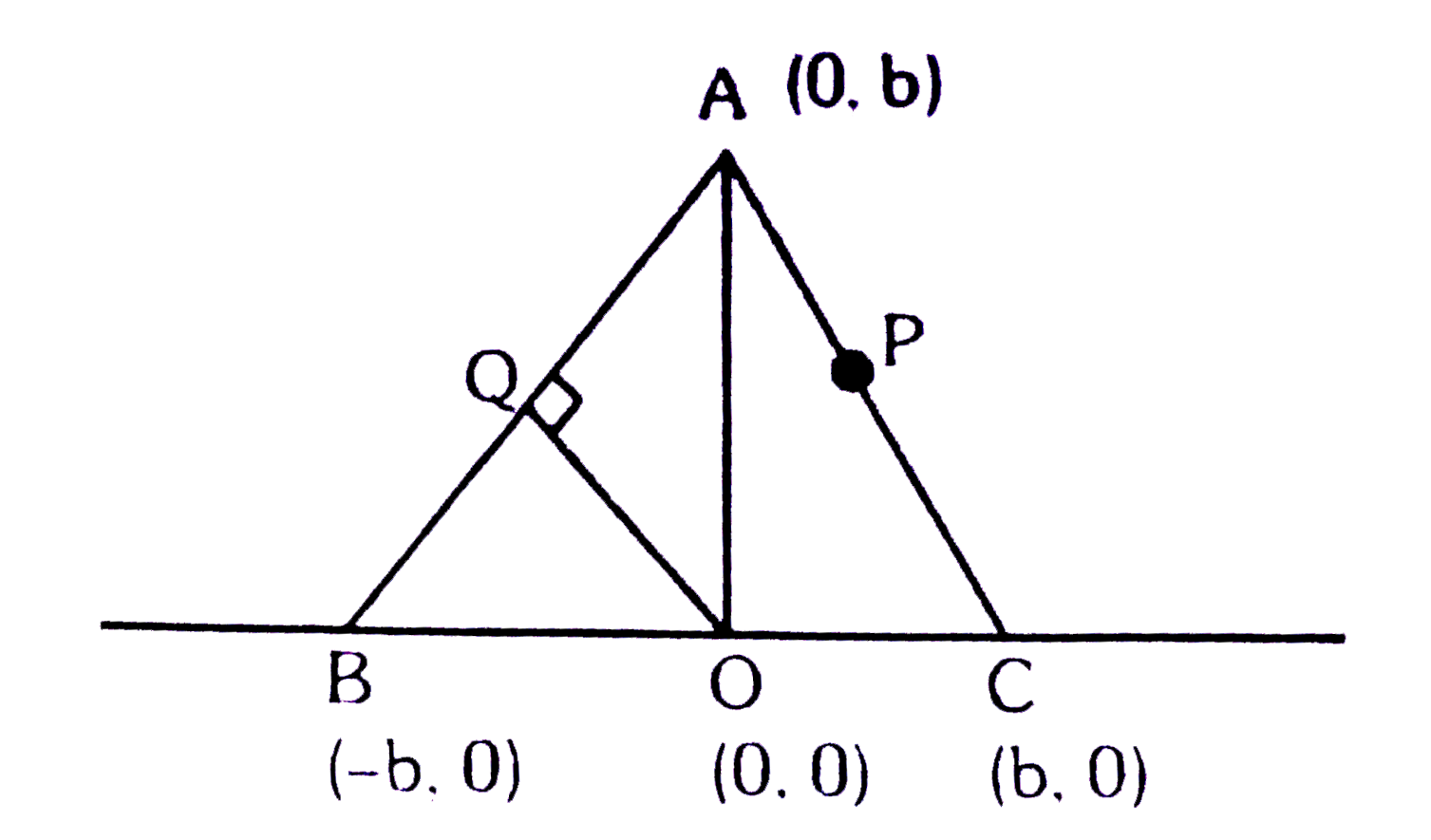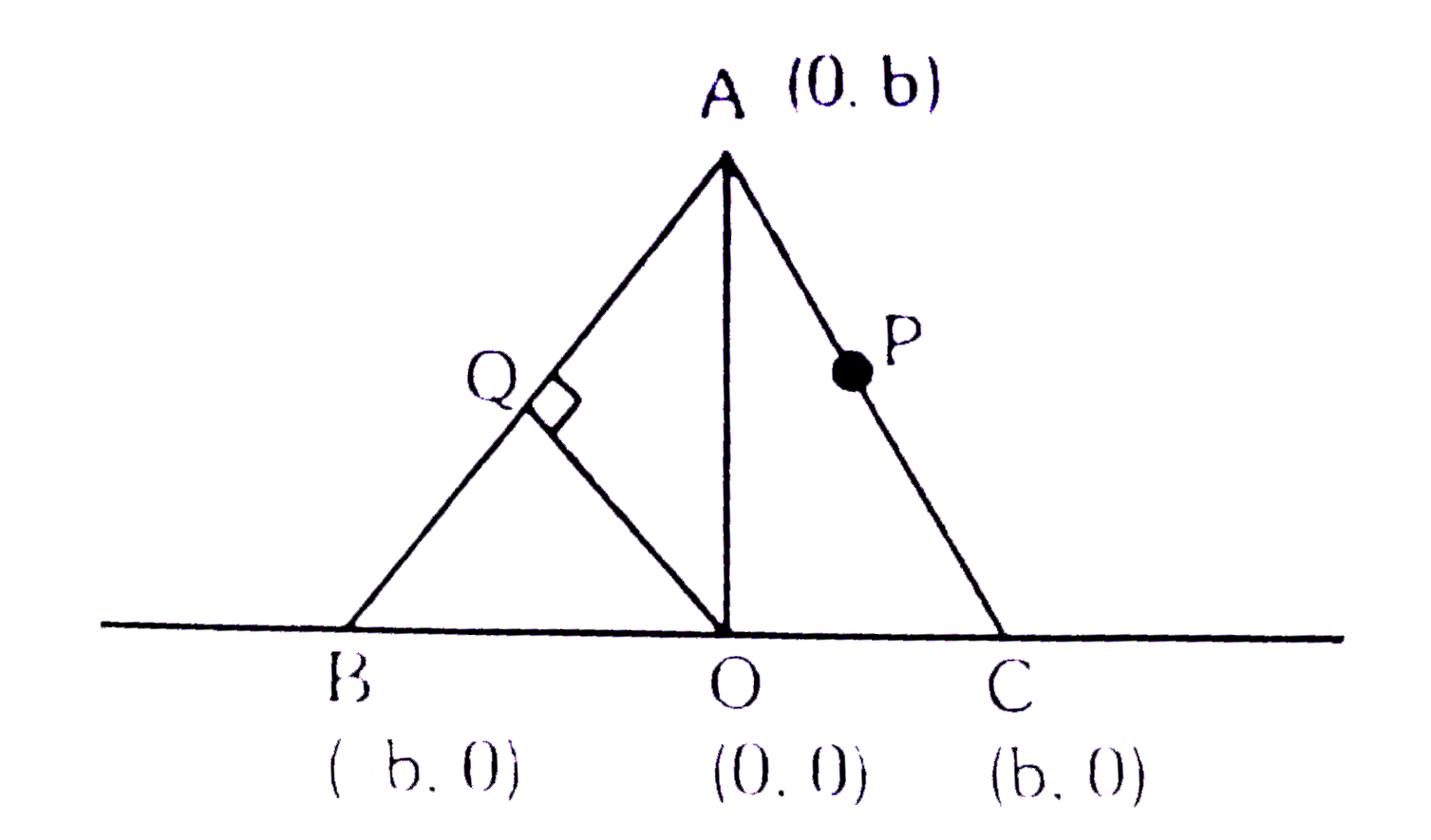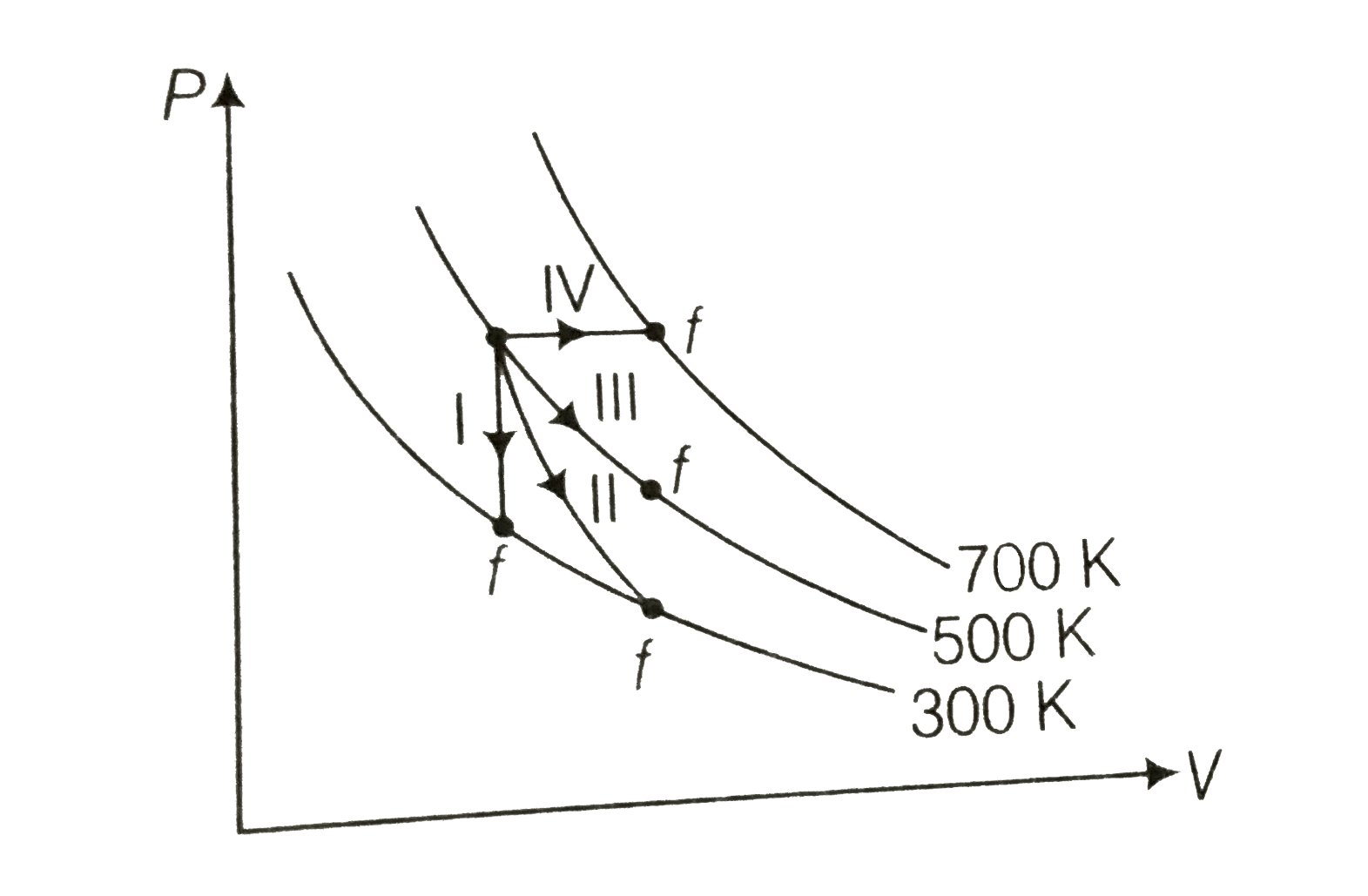DeltaABC is given in adjacent diagram. P is mid-point of AC and Q is foot of perpendicular from origin tp AB

Column-IColumn-IIColumn-III(I)□AQOPis square(i)P=(b2,b2)(P)OQ=OP(II)ΔOPQis an equilateral traingle(ii)Q=(−b2,b2)(Q)AQ=AP(III)OQ=QB(iii)OP=PC(R)OP=b√2(IV)AQ=QB(iv)PC=OC(R)OQ=b
Which of the following is incorrect :
(IV)(iiii)R
(III)(iii)R
(I)(iii)P
(II)(ii)P
The correct Answer is:D
OP=OQ,OP⊥AC, Q is mid point of AB
Topper's Solved these Questions
- TEST PAPERSBOOK - ALLENCHAPTER - TEST PAPERSEXERCISE - part-2 Mathematic
18 Videos
- TEST PAPERSBOOK - ALLENCHAPTER - TEST PAPERSEXERCISE - part-2 Mathematics
48 Videos
- TEST PAPERSBOOK - ALLENCHAPTER - TEST PAPERSEXERCISE - CHEMISTRY
1 Videos
- TEST PAPERBOOK - ALLENCHAPTER - TEST PAPEREXERCISE - CHEMISTRY SECTION-II
8 Videos
- VECTOR ALGEBRABOOK - ALLENCHAPTER - VECTOR ALGEBRAEXERCISE - All Questions
1 Videos
Similar Questions
a,b,c∈R and a, b, c are in A.P. match the entries of column-I with those of column-II.
Column-IColumn-II(a)a2,b2,c2are in A.P.(p)a=b=c(b)a2,b2,c2are in G.P.(q)−12a, b, c are in G.P(c)a2,b2,c2are in H.P.(r)a, b,−12c are in G.P.(d)a + b + c = 3/2(s)b=1/2
View SolutionMatch the nature of aqueous solutions of the substances listed in Column I with the character listed in Column II.
Column IColumn II(A)KCN(aq)(p)Strongly basic(B)TiOH(aq)(q)Neutral(C)BeCl2(aq)(r)Weakly basic(D)NaNO3(aq)(s)Weakly acidic
View Solution
Knowledge Check
DeltaABC is given in adjacent diagram. P is mid-point of AC and Q is foot of perpendicular from origin tp AB

Column-IColumn-IIColumn-III(I)□AQOPis square(i)P=(b2,b2)(P)OQ=OP(II)ΔOPQis an equilateral traingle(ii)Q=(−b2,b2)(Q)AQ=AP(III)OQ=QB(iii)OP=PC(R)OP=b√2(IV)AQ=QB(iv)PC=OC(R)OQ=b
Which of the following is correct :A(II)(ii)PB(I)(iiv)RC(III)(iii)RD(I)(iv)SMatch the column
Column-IColumn-II(i)MoO+22(A)Alcoholic dehydrogenase(ii)Mg+2(B)Nitrogenase(iii)Zn+2(C)Catalase(iv)Fe+3(D)PEP carboxylaseA(i)-B, (ii)-D, (iii)-C, (iv)-AB(i)-B, (ii)-A, (iii)-D, (iv)-CC(i)-D, (ii)-B, (iii)-A, (iv)-CD(i)-B, (ii)-D, (ii)-A, (iv)-CMatch Column -I with column-II and select the CORRECT option from the codes given below .
Column - IColumn - II(P) Autopolypoidy(i)2n+1(Q) Trisomy(ii)AAAA(R) Allopolyploidy(iii)AABB(S) Nullisomy(iv)2n−2AP-(ii), Q-(i), R-(iii), S-(iv)BP-(iv), Q-(i), R-(ii), S-(iii)CP-(ii), Q-(iv), R-(iii), S-(i)DP-(ii), Q-(i), R-(iv), S-(iii)
Match the column
Column-IColumn-II(i)MoO+22(A)Alcoholic dehydrogenase(ii)Mg+2(B)Nitrogenase(iii)Zn+2(C)Catalase(iv)Fe+3(D)PEP carboxylase
View SolutionMatch Column -I with column-II and select the CORRECT option from the codes given below .
Column - IColumn - II(P) Autopolypoidy(i)2n+1(Q) Trisomy(ii)AAAA(R) Allopolyploidy(iii)AABB(S) Nullisomy(iv)2n−2
View SolutionIf θ is the abgle between two vectors A and B , then match the following two columns.
Column I Column II(A)A.B=|A×B|(P)θ=90∘(B)A.B=B2(Q)θ=0∘or180∘(C)|A+B|=|A−C|(r)A=B(D)|A×B|=AB(s)None
View SolutionIf θ is the angle between two vectors A and B , then match the following two columns.
Column I Column II(A)A.B=|A×B|(P)θ=90∘(B)A.B=B2(Q)θ=0∘or180∘(C)|A+B|=|A−C|(r)A=B(D)|A×B|=AB(s)None
View SolutionThermodynamic processes are indicated in the following diagrams

Match the following
Column - IColumn -IIPProcess IaAdiabaticQProcess IIbIsobaricRProcess IIIcIsochoricSProcess IVdIsothermal
View Solution
